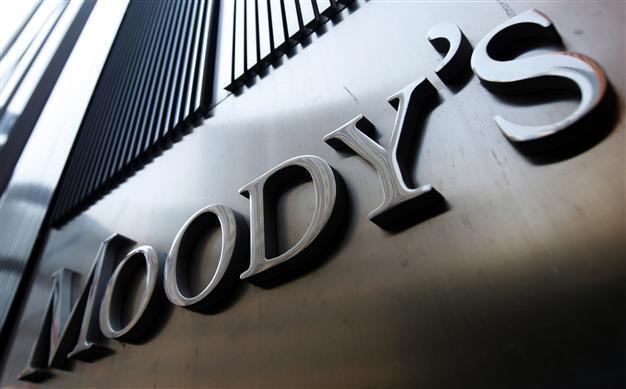Moody's changes Turkey's credit rating outlook to negative from stable
LONDON

Moody's changed Turkey's credit rating outlook from Baa3 stable to Baa negative.
International credit ratings agency Moody's has changed April 11 the outlook on Turkey's Baa3 government bond rating to negative from stable.
The change of Turkey’s credit ratings comes after a long period of political turmoil since the graft probes launched last December.
“The adverse impact of the turbulent political dynamics and lower global liquidity on both international and domestic investor confidence as illustrated by exchange rate volatility is exacerbating the country's existing external financing challenges,” the agency said in a statement.
Moody’s also noted that the confidence of investors had received a blow after a period of political uncertainty.
“Tensions have dampened foreign and domestic investor confidence, which Moody's expects to intensify existing pressures on the country's balance of payments, particularly the financing of the relatively large current account deficit; and the repayment of approximately $163 billion in external liabilities of the Turkish corporate, banking and government sectors,” Moody’s said.
The agency said it expected Turkey's economic growth to slow to 2.5 percent in 2014 and 3.0 percent in 2015, linking the weaker growth prospects to the political situation of the country.
“Moody's believes that the uncertain policy environment stemming from the heightened political risk will constrain the momentum of structural reforms needed to reduce the Turkish economy's external vulnerabilities,” the agency said.
Moody’s announcement put the brakes on the Turkish Lira’s strengthening trend of recent weeks, causing the currency to slide with its highest pace in three weeks.
The lira/dollar ratio, which was around 2.098 level at the stock exchange’s closure on April 10, dropped to above 2.12 in April 11 morning.
Turkey's two-year benchmark yield also climbed 20 basis points to 10.03 percent in the morning, from 9.83 percent on April 10.
However, Moody’s stressed that Turkish economy had the necessary capacity to recover from a negative outlook.
“Moody's notes that the capacity of Turkey's banks, corporates and public institutions to roll over maturing debt has historically been high, even at times of elevated financial distress. Moreover, parts of the Turkish private sector have buffers which offset some of the current financing challenges.”
Fitch Ratings affirmed on April 4 its BBB- rating for Turkey, also the lowest investment-grade rating, but with a stable outlook.
Standard & Poor's in February switched the outlook its rating of BB+ for Turkey, the highest speculative-grade, to negative citing a risk of a hard landing for the country's economy.
